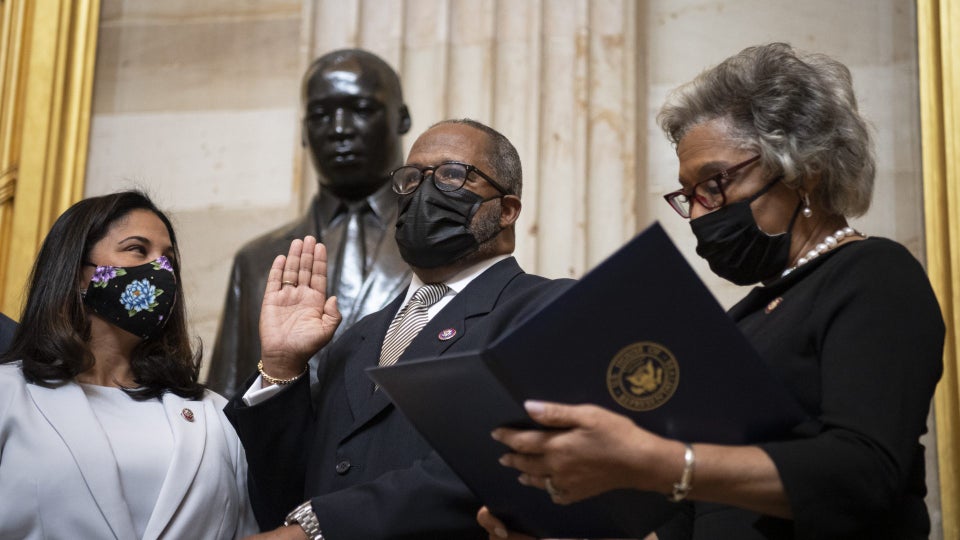-
Home
-
The Conscience of Congress
Since its establishment in 1971, the Congressional Black Caucus (CBC) has been committed to using the full Constitutional power, statutory authority, and financial resources of the federal government to ensure that African Americans and other marginalized communities in the United States have the opportunity to achieve the American Dream.
-
The Conscience of Congress
- About Us
- Newsroom
- Initiatives
- Policy & Task Forces
- Contact Us




In the News
Rep. Troy Carter is the Newest Member of Congress
ESSENCE,
May 19, 2021
Rep. Troy Carter is the Newest Member of CongressNEW ORLEANS LAWMAKER FILLS SEAT FORMERLY HELD BY PRESIDENT BIDEN’S SENIOR ADVISOR, CEDRIC RICHMOND.
There’s a new member of Congress, one who adds to the ranks of Black Democratic lawmakers. House Speaker Nancy Pelosi (D-CA) presided over the ceremonial swearing-in of Congressman Troy Carter on May 11. Once he took that oath, he was sworn into the Congressional Black Caucus (CBC) as well by its chair, Rep. Joyce Beatty (D-OH). “I will serve our district with every fiber of my being to ensure everyone has the chance to fulfill their hopes and dreams,” said Carter following the ceremony. “There’s a lot of hard work ahead.” Carter is a former State Senator from New Orleans who won a special election in April to represent Louisiana’s 2nd District. The highly coveted seat was formerly held by Cedric Richmond, now a Senior Advisor to President Joe Biden and Director of the White House Office of Public Engagement. Carter, 57, is a graduate of Xavier University. His wife, two sons and other relatives joined him for the Capitol Hill ceremony. Besides Richmond, others in attendance included Louisiana Governor John Bel Edwards, and members of the state’s Congressional delegation. The Collective PAC–a national organization that works to increase the ranks of Black elected officials across the country–endorsed Carter’s campaign. Co-founders Quentin James and Stefanie Brown James released a congratulatory statement following his win that said in part: “As we push to expand racial justice and equity across the country, this work has never been more important and we’re excited to see leaders like Troy get to work in Washington.” They added, “[h]is leadership in the House of Representatives will be critical in holding Republicans accountable and advancing an agenda that gives voice to the systemic inequalities that continue to hold back our most vulnerable communities.” |
